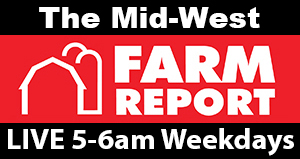
The Wisconsin Department of Agriculture, Trade and Consumer Protection (DATCP) and the Wisconsin Veterinary Diagnostic Laboratory confirmed that a Dunn County horse tested positive for Eastern equine encephalitis (EEE). It is the state’s first confirmed equine case of EEE this year.
The unvaccinated crossbred mare was approximately 10 years old and was euthanized due to her rapidly progressing neurologic symptoms. Subsequent testing was positive for EEE. DATCP encourages horse owners to vaccinate their horses against EEE and West Nile virus (WNV), which are both transmitted by mosquitoes. EEE is fatal in more than 90% of equine cases, and WNV is fatal in 30-40% of cases.
“The equine vaccines for both EEE and WNV are very effective,” said Dr. Julie McGwin, DATCP’s equine program manager. “It’s always heartbreaking seeing equines succumb to these diseases knowing that the suffering may have been prevented by vaccination. It’s important that horse owners contact their veterinarians to discuss effective vaccination protocols.”
Equines, other animals and humans can become infected by EEE. In 2019, Wisconsin confirmed five equine cases of EEE and no cases of WNV; in 2017, the state recorded a record 24 cases each of EEE and WNV. EEE is not contagious between horses and, while humans can be infected by both WNV and EEE, the viruses do not pass directly between people and horses. Mosquitoes carry the viruses from infected birds, and the only route of transmission is from a mosquito bite. Confirmation of a horse infected with EEE means the virus is in Wisconsin’s mosquito population.
Because the viruses follow mosquito populations, the threat in Wisconsin varies depending on the weather but normally starts in mid- to late summer and remains until the first killing frost.
Besides vaccination, limiting exposure to mosquitoes will help control these diseases.
DATCP’s Division of Animal Health monitors animal health and disease threats, promotes humane treatment of animals, and provides licensing and registration regulation for animals in Wisconsin.

Leave a Reply